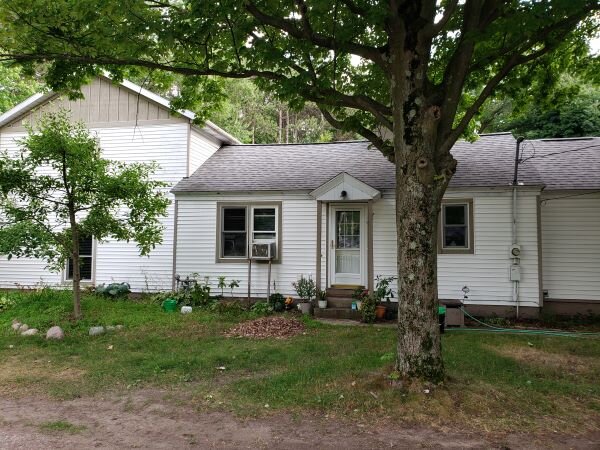
A cash offer on a house is usually lower than the market price because the seller can sell fast with certainty and convenience, while the buyer takes on the risk and costs of repairs or resale. Sellers trade a portion of the home’s value for a fast, as-is transaction without financing delays. In other words, when you sell your house fast for cash, you’re prioritizing certainty over the maximum market value.
What Makes A Cash Offer Different From A Market Sale?
Selling your home on the open market typically means working with buyers who rely on a mortgage lender. That process comes with inspections, appraisals, and financing requirements that can slow things down—or stop the deal entirely. A cash sale, on the other hand, bypasses all of that. The buyer brings the funds directly, and you can close as soon as the paperwork is complete.
This streamlined approach is what creates the pricing gap. Market value vs. cash offer comes down to expectations: market value reflects what traditional buyers will pay when everything goes right, while a cash offer reflects what a buyer is willing to pay immediately, in as-is condition, while assuming risk.
Faster And More Certain Closings
Speed is one of the biggest advantages of selling your house for cash. While financed transactions usually take 30 to 45 days to close, a cash deal can wrap up in 7 to 10 days. For sellers who are pressed for time—because of relocation, foreclosure, or financial stress, this speed is often worth more than holding out for a higher price.
Certainty is another factor. With no lender involved, there’s no risk of financing falling through at the last minute. That assurance makes cash offers appealing even if the number is lower.
As-Is Purchases Save Sellers Time And Stress
Another reason cash offers come in lower is that cash home buyers usually purchase properties as-is. The responsibility for repairs, upgrades, or cosmetic fixes shifts entirely to the buyer.
This is a relief for many sellers, who might otherwise spend $15,000 or more on home improvements just to get the house ready for the market. By choosing to sell your house as-is, you avoid those costs and delays. In return, though, the buyer deducts those expected expenses—and their own profit margin—from the offer.
Risk And Profit Considerations For Buyers
From the buyer’s perspective, risk drives the discount. Cash home buyers don’t know the full scope of needed repairs, how long the home might sit before resale, or how the housing market will behave in the meantime. To protect their investment, they lower the price.
Consider an example: if repairs are expected to cost $30,000 and the buyer wants an additional $20,000 cushion for profit and risk, their cash offer will likely come in at least $50,000 under market value. This isn’t necessarily unfair—it’s simply the math behind the deal.
Why Sellers Accept Less For A Cash Offer
Taking less money may be a drawback. But for many sellers, the benefits outweigh the difference in price. With a cash deal, you get:
- Speed – Closing in days instead of weeks.
- Certainty – No financing or appraisal hurdles.
- As-is convenience – No need for costly repairs or updates.
- Lower fees – Some buyers cover closing costs or skip commissions.
- Peace of mind – The sale is almost guaranteed once accepted.
And peace of mind is valuable. Roughly 1 in 6 deals fall through due to loan issues, inspections, or appraisals. A cash offer avoids that risk entirely.
Real-Life Situations Where Cash Makes Sense
This trade-off makes the most sense in certain circumstances. Sellers often turn to cash buyers when they’ve inherited a home that needs work, when they’re dealing with tenants they no longer want to manage, or when they’re facing foreclosure or back taxes. Relocating quickly for a job or selling a property in poor condition are also common situations.
In each case, the convenience of a cash sale outweighs the potential extra dollars from a traditional listing. It’s about moving forward quickly and with less stress.
How Much Lower Is A Cash Offer Than Market Price?
On average, cash offers come in 10% to 20% below market value, though this depends on property condition and demand. A move-in-ready home in a hot market might only see a small discount, while a fixer-upper could see a much larger one.
Ultimately, the gap reflects the balance between what the buyer risks and what the seller gains. Buyers need enough margin to cover repairs, costs, and potential market shifts. Sellers get certainty, speed, and freedom from the property.
Should You Take A Cash Offer?
The choice comes down to your priorities. If squeezing every dollar from your home matters most, listing on the open market might be the right move. But if you value a fast, certain, and simple sale, then a cash offer could be the better option.
In the end, it’s a trade: some value is left on the table in exchange for peace of mind and convenience. For many sellers, especially in challenging situations, that trade is well worth it.
Frequently Asked Questions About Cash Offers
How much lower is a cash offer than the market value?
Cash home offers are typically 10% to 20% lower than the listing price, though the exact amount depends on the property’s condition, location, and demand.
Why do cash buyers pay less?
Cash buyers pay less because they take on the risk of repairs, market shifts, and resale timing. They also include a margin for profit if they plan to renovate or flip the property.
Do sellers ever get full market value with a cash offer?
It’s rare, but it can happen in hot markets where homes are in excellent condition. In most cases, buyers expect a discount in exchange for speed and certainty.
Is a cash offer better than a financed offer?
It depends on your priorities. A financed offer might be higher in price, but it could take 30–45 days to close and comes with contingencies. A cash offer is lower but usually closes within 7–10 days and almost never falls through.
What kinds of homes get the biggest cash offer discounts?
Homes that need major repairs, inherited properties, or rentals with problem tenants usually get the biggest discounts. Buyers factor in repair costs and management risks when making their offers.
What are the pros and cons of selling your house for cash?
The pros include speed, certainty, and the ability to sell as-is without repairs. The cons include accepting a lower price compared to market value.
Why would a seller accept a lower cash offer?
Sellers accept lower cash offers to avoid repairs, skip financing delays, and a have a faster closing. For many, the certainty and convenience outweigh the extra money they might make on the open market.
Sell Your House As-Is for Cash In Kalamazoo, MI
Sell your Kalamazoo home as-is for cash today—no repairs, no fees, no waiting. Contact Ryan Buys Houses and get a fair, no-obligation offer within 24 hours. Move on with cash in hand. Fill out our online form or call (269) 775-4095 to get started.
